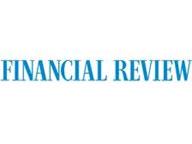Faculty News
—
Professor Nouriel Roubini's comments on interest rates are highlighted
—

Excerpt from Bloomberg -- "'We are reaching the limits of what monetary policy can do and we have to have the use of fiscal policy,' Roubini said."
Faculty News
—

Excerpt from Bloomberg -- "'We are reaching the limits of what monetary policy can do and we have to have the use of fiscal policy,' Roubini said."





















